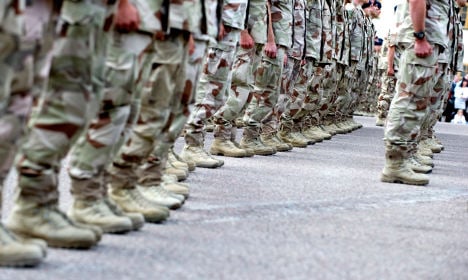p { margin-bottom: 0.25cm; line-height: 120%; }a:link { }
The Mali troops receive UN rations of 1,800 kilocalories per person and day. But some have told Swedish Dagens Nyheter daily that this is not enough.
“It's insane that in 2015 we should not be getting enough food. It affects the mood. People get cranky and angry when they can't eat until they get full,” one soldier told the newspaper.
“1,800 calories is perhaps enough for the UN soldiers from Burkina Faso and Bangladesh who are often smaller built, but not for us,” said one Swede, according to Dagens Nyheter.
Head of the Swedish Mali troops, lieutenant colonel Carl-Magnus Svensson, confirmed that they have experienced issues with the food rations, but says that expecting to eat the same food as back home in Sweden is a “luxury problem” and adds that the Swedish forces cannot demand more food than other UN units in Timbuktu.
“If you work out like an elite athlete and carry out the tasks here and expect to eat the way you do at home, you will be hungry. A unit's capability will go down during the operation,” he told Dagens Nyheter.
Meanwhile, the Swedish government announced plans on Thursday to send 35 Swedish troops to Iraq to help fight terror organization Isis. Politics and humanitarian support is no longer enough, said Foreign Minister Margot Wallström.
“Increased military support is actually required now,” she told news agency TT.
The Swedish troops are part of an international operation to train Iraqi and Kurdish security forces. The government discussed the plans earlier this year, and is now set to present a formal request to parliament, proposing that the armed forces should be extended to 120 soldiers if necessary.
If approved by parliament, the first troops could leave Sweden in June.
“It's a response to the Iraqi government's request and we want to help with education and advice to the peshmerga units in particular,” Wallström told TT and added they would be working in cooperation with the US, Germany, Netherlands, Denmark, Norway and Finland.



 Please whitelist us to continue reading.
Please whitelist us to continue reading.
Member comments